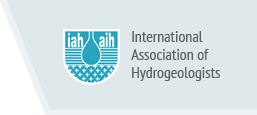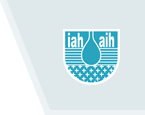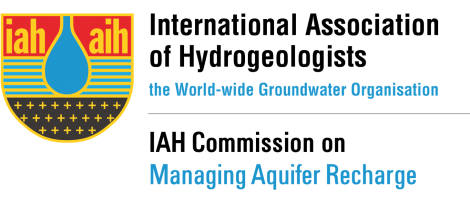About the Commission
Aims
IAH’s MAR Commission aims to expand water resources and improve water quality in ways that are appropriate, environmentally sustainable, technically viable, economical, and socially desirable. It will do this by encouraging development and adoption of improved practices for management of aquifer recharge. This is achieved by:
- increasing awareness of MAR among IAH members and the greater groundwater community;
- facilitating international exchange of information between members;
- disseminating results of research and practical experience;
- informing policy development that enables benefits of MAR to be realized;
- facilitating members to conceive, undertake and deliver joint projects of international value.
Actions
To do this we have :
- resources on this web site and a publications repository
- an email list that you can join from this website
- working groups to undertake specfic international projects
- symposia and workshops
- links to national networks
How to join
Join the email list (its free) and on average circulates less than 8 emails a year.
Join a working group (cost is free but there is an assignment to do as a contributor to an international project team)
Come along to a Plenary Session (free and no obligation) to discover how IAH-MAR could be helpful for you or your colleagues.
We encourage you, if you find this Commission useful, to also join IAH (this has annual subscription fees and you receive Hydrogeology Journal, IAH Book Series, newsletters, discount registration to IAH Congresses and ISMAR Symposia)
History
Established as an IAH working group on artificial recharge in 1998 by Ivan Johnson and Peter Dillon, that first met in CapeTown in 2000, it became the IAH Commission on Managed Aquifer Recharge in 2001 co-chaired by Peter Dillon and Ian Gale, and was fostered by UNESCO IHP. Recognising the importance of MAR, particularly in arid and semi-arid areas, and also the high early incidence of avoidable problems with MAR projects, the Commission has helped inform research, practice and policy in MAR and communicated broadly with the aim of all new projects being sustainable. IAH-MAR continues to encourage participation in working groups addressing key gaps in knowledge and dissemination and with partners UNESCO and ASCE has led the ISMAR series of symposia. Annual Reports give a synopsis of commission activities.
A specific role in UNESCO IHP
Since its commencement IAH-MAR has actively contributed to the UNESCO International Hydrological Programme. This role has grown and in IHP VIII (2014-2021) it specifically supports the achievement of Theme 2 “Groundwater in a changing environment”,and is the leading contributor to Focal Area 2.2 “Addressing strategies for management of aquifer recharge”, notably through IAH-MAR working groups.
Focal Area 2.2 Strategies for Management of Aquifer Recharge
General objective:
Improve security and quality of water supplies especially in water scarce areas under climate change and population growth.
Specific Objectives:
- Integrate managed aquifer recharge into Integrated Water Resources Management to address effects of locally changing climate, population and food production
- Develop and apply methods to assess impacts of recharge structures on water availability and quality, social and economic resilience and local ecosystems
- Evaluate the costs and benefits of recycling of appropriately treated urban waste and storm water for aquifer recharge
- Enhance governance capacities and institutional and legal frameworks to aid effective MAR implementation.
- Develop a scientific basis for the prevention and management of clogging, improve measurement methods and models and knowledge of biochemical processes and fate of pathogens and organics in MAR systems.
For more information on UNESCO IHP VIII click here.



